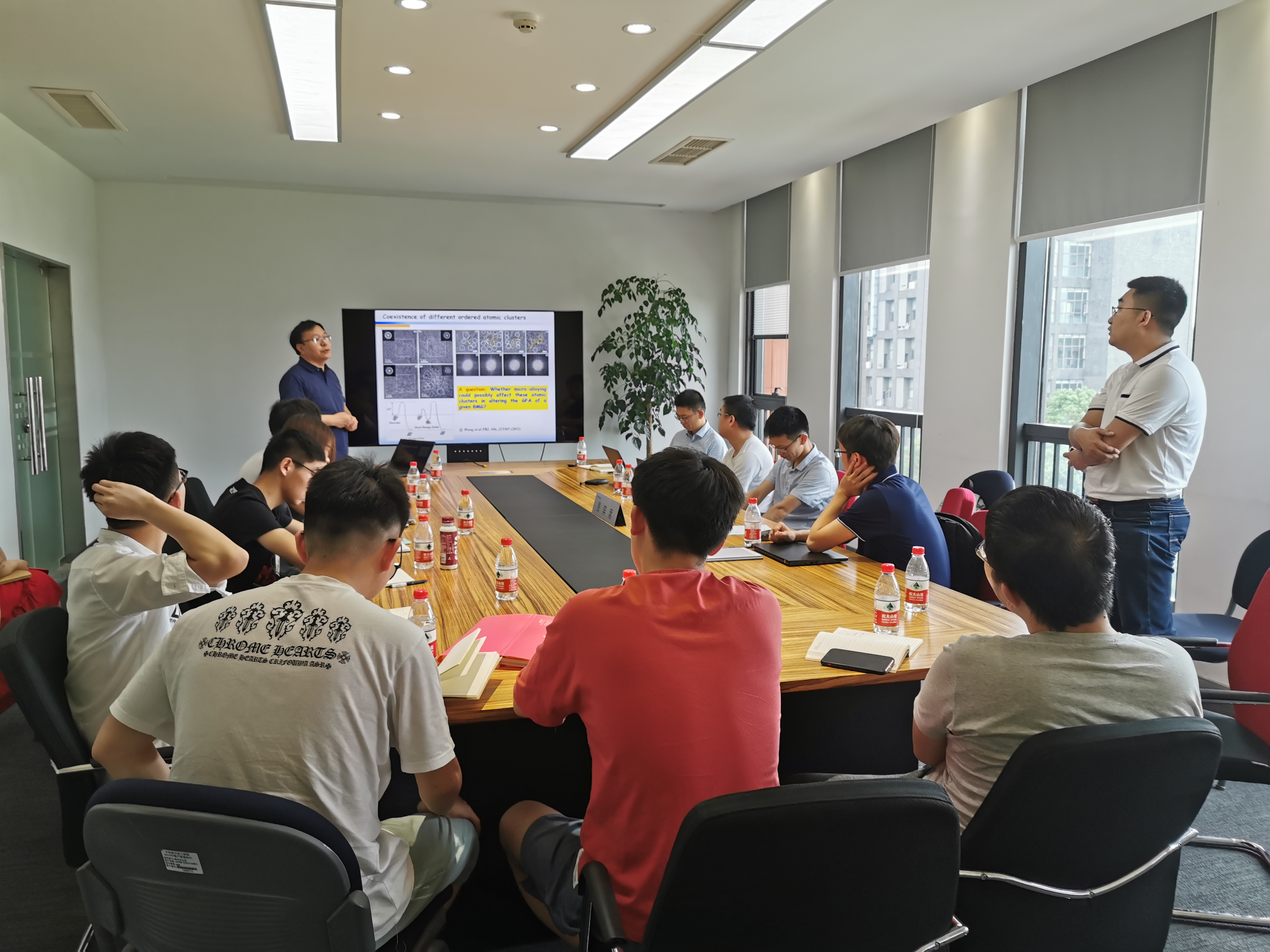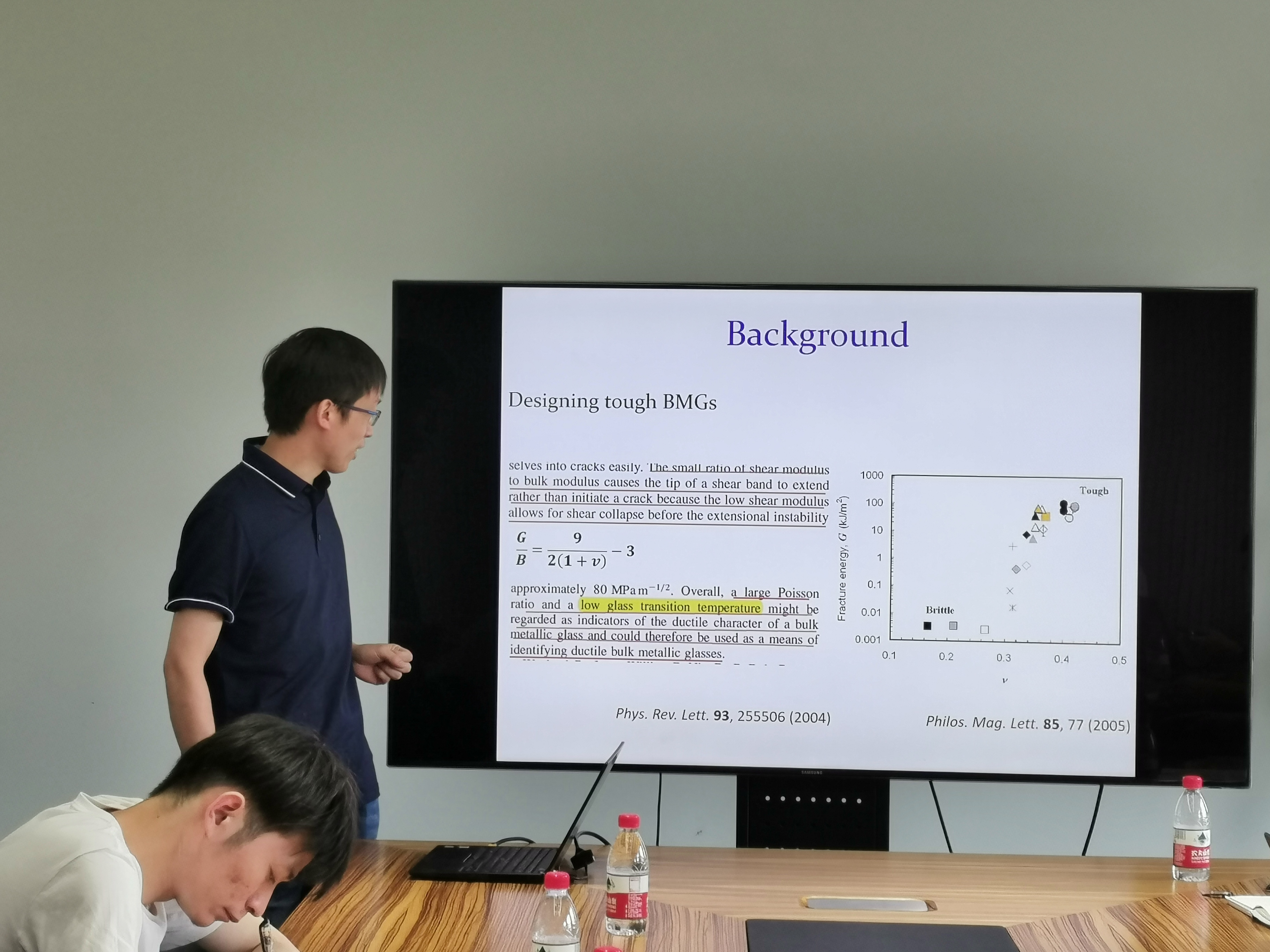On June 13th,at our team invitation, Professor Gang Wang, Professor Qing Wang, Associate Professor Jun Yi of Shanghai University visited CNITECH and conducted academic exchanges.
Research Fellow Wang Junqiang presided over the report meeting, and three teachers shared the latest research progress of their research group with the students in the form of reports.Researcher Fellow Wang Qing made a paper entitled “Correlation of glass-forming-ability and structural relaxation of metallic glass to the atomic-scale order”, he mainly focused on the structural sources of the microalloying effect of bulk metallic glass, especially the problems on the atomic scale. By adding Y element to Cu-Zr-based BGM, he studied the relationship between the glass forming ability and structural relaxation and atomic scale. The research results showed that a small amount of Y can form more crystalloidal. The structure order induced by microalloying effectively increases the viscosity of the supercooled liquid, reduces the thermodynamic driving force of crystallization, and leads to the decrease of crystallization rate and structural relaxation, thus enhancing the glass formation ability.Associate Professor Yi Jun made an academic report entitled “Enhanced Fracture Toughness of a Bulk Metallic Glass through Fracture in Mode 1 Loading”. He pointed out the shortcomings of existing fracture formulas, through the mechanical property test, and the fracture of the material morphology analysis, the result is shear fracture.Professor Wang Gang made an academic report entitled “The Effect of zirconium based amorphous Alloy on Rat bone tissue”. He proposed a new material which is more compatible with human body and more stable in strength and structure during service, aiming at the problems of existing medical equipment and implant infection. The experiment took Zr61Ti2Cu25Al12 amorphous alloy as the research material. Through structural characterization, hydrophilic and hydrophobic studies, metal ion release and corrosion behavior studies, in vitro cell experiment and animal in vivo analysis, and compared with traditional polymer materials and pure titanium materials, the results show that zirconium based amorphous alloy has excellent biocompatibility, suitable for bone tissue fixation devices in orthopedics, sports medicine, plastic surgery and so on. After the report, the three teachers and the on-site teachers and students had a warm exchange and discussion on many hot issues.




